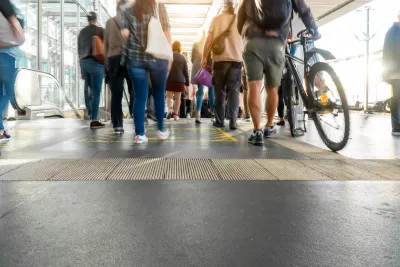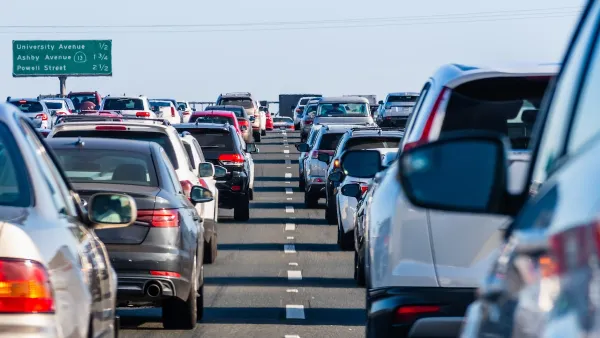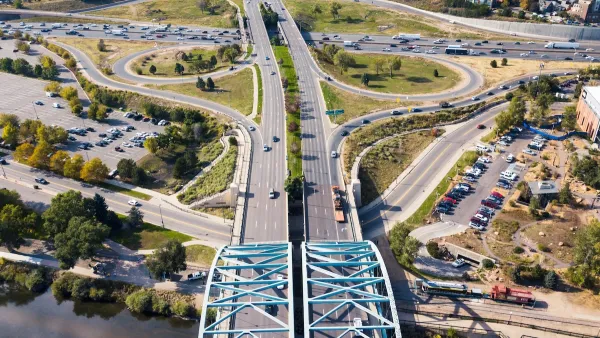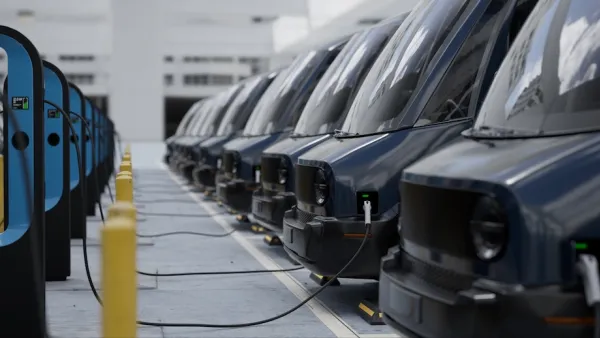California and Kentucky bookend a recent ranking of how well states are using federal infrastructure money to address climate change and racial inequities in their transportation networks.

Following the passage of the Inflation Reduction Act in 2022 and the Bipartisan Infrastructure Law in 2021, historic amounts of federal funding are going to states to invest in infrastructure projects, including transportation. The Biden administration has promoted the use of those funds to address environmental and equity concerns. However, most decisions about how the money is spent fall to state officials, writes Daniel Vock, senior reporter for Route Fifty.
To shine a light on how that’s panning out, the Natural Resources Defense Council (NRDC) recently analyzed and ranked the 50 U.S. states according to how well they are directing money from the infrastructure law to improve equity and climate outcomes in their transportation networks.
“A lot of what you read is the amount of money that is being spent, and that’s seen as a good thing in and of itself. But we would argue that what's more important than the amount of money is literally what is being built on the ground and who that is serving,” John Bailey, an NRDC advocate and one of the primary authors of the report, told Route Fifty.
“Researchers based their rankings on 19 separate factors, including the greenhouse gas impact of road projects, the deployment of electric vehicle chargers, efforts to encourage residents to avoid car trips, and procurement policies that promote women- and minority-owned businesses,” reports Vock.
According to NRDC’s report, the 10 states doing the most and the 10 states doing the least to improve equity and climate outcomes in their transportation networks are as follows:
10 states doing the most
- California
- Massachusetts
- Vermont
- Oregon
- Washington
- New York
- Colorado
- New Jersey
- Connecticut
- Minnesota
10 states doing the least
- Kentucky
- Louisiana
- Nebraska
- Alabama
- South Carolina
- Arizona
- Idaho
- Alaska
- Montana
- Mississippi
Full rankings for all fifty states as well as details on analysis are available in NRDC’s full report.
FULL STORY: The best and worst states for green, equitable transportation

Analysis: Cybertruck Fatality Rate Far Exceeds That of Ford Pinto
The Tesla Cybertruck was recalled seven times last year.

National Parks Layoffs Will Cause Communities to Lose Billions
Thousands of essential park workers were laid off this week, just before the busy spring break season.

Retro-silient?: America’s First “Eco-burb,” The Woodlands Turns 50
A master-planned community north of Houston offers lessons on green infrastructure and resilient design, but falls short of its founder’s lofty affordability and walkability goals.

Test News Post 1
This is a summary

Analysis: Cybertruck Fatality Rate Far Exceeds That of Ford Pinto
The Tesla Cybertruck was recalled seven times last year.

Test News Headline 46
Test for the image on the front page.
Urban Design for Planners 1: Software Tools
This six-course series explores essential urban design concepts using open source software and equips planners with the tools they need to participate fully in the urban design process.
Planning for Universal Design
Learn the tools for implementing Universal Design in planning regulations.
EMC Planning Group, Inc.
Planetizen
Planetizen
Mpact (formerly Rail~Volution)
Great Falls Development Authority, Inc.
HUDs Office of Policy Development and Research
NYU Wagner Graduate School of Public Service




























